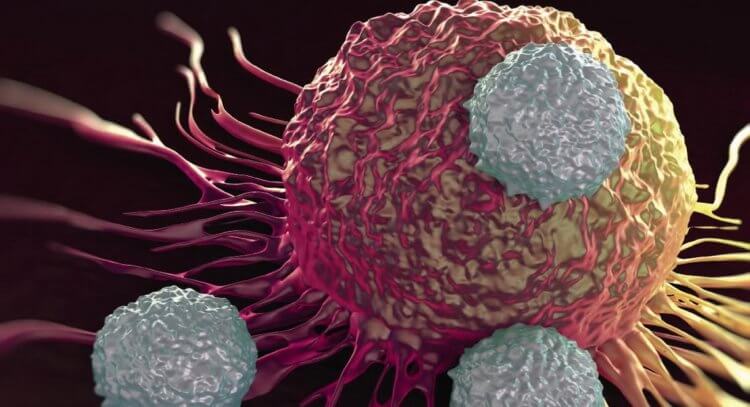The COVID-19 pandemic has drawn the attention of scientists and physicians to mRNA vaccines. As it turned out, they can not only protect against the coronavirus, but also become a powerful weapon against hard-to-treat cancer.

This effect occurs when they are combined with an immunotherapy drug used to treat colon, head and neck cancers. Currently, participants are being recruited in Phase I and Phase II clinical trials of the new method of fighting cancer. Some patients have already undergone the treatment, which allows scientists to already evaluate its effectiveness, as well as the degree of tolerability and safety of the therapeutic mRNA vaccines. What are the prospects for this technology and what have the first results of clinical trials shown? Read more about it below.
When the mechanism of cell division fails, cells begin to proliferate uncontrollably, which leads to malignant tumors.
Treating cancer with mRNA vaccines – how it works
John Cook, a physician and medical director of the RNAi Therapy Center in Houston, calls this technology “biological software.” Its essence is to alert the immune system to the presence of tumors in the body and teach it to detect them. In other words, it is the immune system, not any drugs, that directly fights the disease. This distinguishes this technology from another, no less interesting one that we wrote about earlier – obtaining a cure for cancer from the milk of mutant goats.
mRNA contains information about the primary structure of proteins and is synthesized from DNA as a result of transcription.
If you want not to miss news from the world of science and high technology, be sure to subscribe to our Telegram channel.
To point the immune system to a target to hit, vaccines find so-called target proteins that appear on the surface of cancerous tumors. By the way these “targets” are found, mRNA vaccines are divided into two types – universal and personalized.
According to doctors, the effectiveness of universal vaccines is in question. As David Brown, an oncologist at Dana-Farber Cancer Institute and Harvard Medical School who specializes in name therapy, says – “For a vaccine to be effective, you always have to have the right target.” However, there is no universal target for cancer, as in the case of the coronavirus spiking protein. DNA mutations in cancer cells vary from one patient to another.
Personalized cancer vaccines lack this disadvantage, which is why experts consider them more promising. They are created personally for each patient. They do this by taking a sample of their tissue and analyzing their DNA to identify the mutations that distinguish cancer cells from healthy cells. Computers compare the two DNA samples to identify unique mutations in the tumor, then the results are used to create an mRNA molecule that will go into the vaccine. It takes four to eight weeks to create an individual vaccine.
The mRNA vaccines “train” the immune system’s T cells to recognize cancers mutations.
After the vaccine is administered to a patient, the mRNA tells the body’s cells that they must produce proteins that are associated with specific mutations in their tumor. The tumor protein fragments that are created from the mRNA are then recognized by the patient’s immune system. Essentially, the mRNA instructions train the immune system’s T cells to recognize up to 20 mutations in cancer cells and attack only those. As a result, the immune system looks for similar tumor cells throughout the body and destroys them.
According to John Cook, personalized vaccines can be used in situations where cancer can metastasize and in severe cases for which medicine does not currently have effective solutions. Van Morris, a physician and assistant professor of medical oncology who is leading a phase II clinical trial of personalized mRNA vaccines for patients with stage II-III colorectal cancer, confirms this information. According to him, the technology can be used regardless of the type of cancer and its degree of aggressiveness.
Malignant melanoma (pink) is one of the worst types of human cancer, which spreads rapidly and can affect almost any organ. It can be cured with mRNA vaccines.
Daniel Anderson, a leader in nanotherapeutics and biomaterials at the Massachusetts Institute of Technology, explains that one of the main features of cancer is the signals it sends to the immune system. They cause the immune system to calm down, which makes the disease invulnerable. Accordingly, the vaccine nullifies this ability. By the way, cancer cells differ from healthy cells in particular “voraciousness”. This allowed Scottish scientists to develop another method of cancer treatment, which they called “Trojan horse”.




